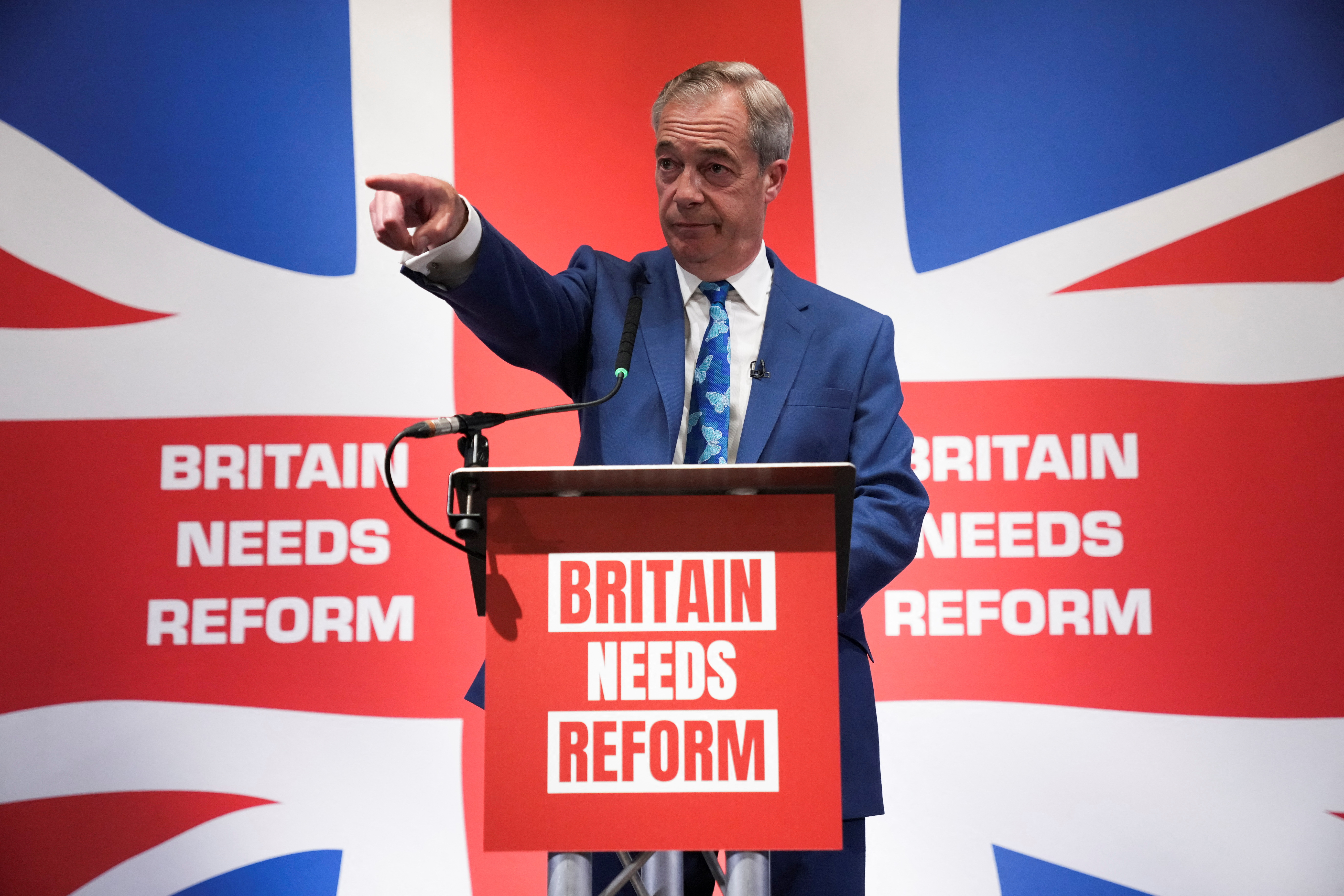Britain’s right-wing Reform UK party, led by Brexit campaigner Nigel Farage, called on Monday for a £40 billion ($51 billion) tax cut for voters, funded by scrapping the interest paid to banks by the Bank of England.
Reform, sitting third in pre-election opinion polls and compounding the woes of the governing Conservatives, said it wanted a £20,000-annual threshold at which people start to pay income tax, up sharply from £12,570 now.
Party Chairman Richard Tice said the plan would speed up the economy and end the “gross negligence” of the BoE paying tens of billions of pounds a year to banks under its quantitative easing programme, funded by taxpayers.
“This is real cash, your money, being used to enrich the City of London,” Tice told a news conference.
Under its QE economic stimulus programme, the BoE bought £875 billion of government bonds that pay a fixed interest rate, which it paid for with cash on which it pays interest at its main interest rate, which is now at a 16-year high.
Former BoE officials have suggested banks could earn interest on only a proportion of their deposits at the BoE.
Governor Andrew Bailey has said that would limit the BoE’s ability to steer the economy via interest rate changes. Finance minister Jeremy Hunt has said it would hurt Britain’s competitiveness as a financial services centre.
But the debate has not faded, given the scale of the challenge facing the next government to improve public services without adding to Britain’s debt burden.
The Conservatives and the main opposition Labour Party – which looks set to win the July 4 election – have ruled out raising the rates of income tax, national insurance and value-added tax.
Capital Economics, a consultancy, estimates that the government could save up to £40 billion a year if the BoE stopped paying all interest on bank reserves.
But that amount is likely to drop to around £17 billion as interest rates fall and the BoE sells more of the bonds it bought under QE, it said, adding that a partial, or tiered, system was more likely than ending interest altogether.
“Even so, this would still be a chunky source of revenue for the government,” Capital said in a note to clients on June 5. “As this would effectively be a tax on banks, at the margin it may weigh on the supply of credit.”
Reform is expected to win very few, if any, seats in parliament, but it is putting pressure on the Conservatives by deepening the split among Britain’s right-of-centre voters.






Click here to change your cookie preferences